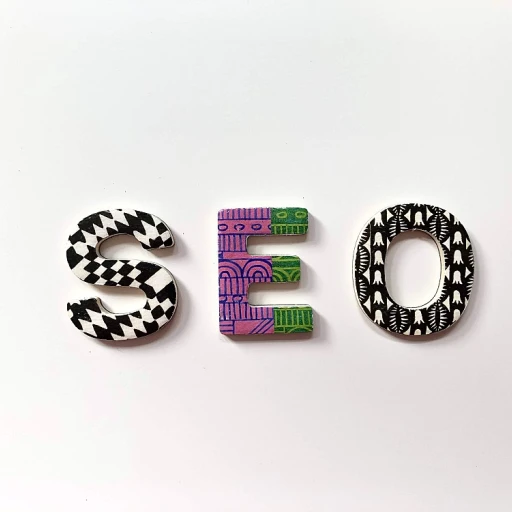
AI-driven content creation: setting a new bar for relevance and quality
AI-driven content and the quest for quality
In a landscape where content is king, artificial intelligence is quietly establishing its dominion, redefining the standards for relevance and quality in digital content. With users' growing demands for information that is not just accurate but also engaging, AI tools are now being employed to craft compelling narratives paired with data-driven insights. A prominent example is GPT-3, an advanced language generation model, which has been utilized to produce articles that rival the quality of human writers. According to a recent study, around 30% of marketing professionals have experimented with such technology, leading to an often indiscernible difference between man and machine-generated content.
The written word isn't the only realm impacted by AI in content creation. Visual content, vital for user engagement, has seen a surge in quality with tools capable of generating high-resolution images tailored to complement textual content. This amalgamation of AI-generated visuals with written material aligns perfectly with Google's Helpful Content System, promising a more immersive and valuable user experience.
Success stories in AI-driven content
Consider the case of a tech blog that saw a 65% uptick in organic traffic within two months after incorporating AI-generated content into their strategy. The blog, upon conducting a content audit, realized the potential of AI in addressing gaps in their content coverage and in elevating their content quality to better meet user intent. As outlined by experts like Jason Miller, author of 'Welcome to the Funnel', this strategic approach to embrace AI for content creation can massively boost a site's SEO performance.
But it's not just about creating content en masse; AI excels in personalizing content to individual user behaviors and preferences. Algorithms can now analyze user data and produce tailored recommendations, significantly enhancing user experience. This has been demonstrated in case studies where bounce rates were drastically reduced due to the high relevance of the article suggestions provided to individual readers.
Relevance meets accuracy
The synthesis of AI tools in content creation is poised to set a new benchmark in digital marketing—one where the blend of relevancy, accuracy, and human appeal forms the cornerstone of a successful SEO strategy. While AI navigates through vast amounts of data to generate relevant content, human oversight ensures that these automated pieces resonate on a personal level, boasting a touch of empathy and human understanding that pure algorithms can't replicate—yet.
The human-AI collaboration
Insights from industry connoisseurs like Sundar Pichai, the mind behind Google's AI-first approach, reflect on how the collaboration between AI and human creativity is pushing the boundaries of what's possible in SEO. The transition from keyword-stuffed articles to AI-assisted, high-quality content has not gone unnoticed by search engines; as machine learning continues to influence Google's algorithms, websites adapting to AI-guided content strategies are likely to stay ahead of the curve.
As we delve deeper into the roles of AI in SEO, from the analysis of search trends to automation in on-page SEO tasks, we can recognize the inception of a new era where AI is not merely a tool but a partner in the endless quest to better understand and fulfill user intent.
Leveraging AI for predictive SEO analysis
Predictive Analytics: the Crystal Ball of SEO
Picture the marketing world as a giant chessboard, with search engines setting the rules of the game. Here's where artificial intelligence becomes the grandmaster, offering a sharp strategy with its predictive analytics tools. Now, let's peel back the curtain on how AI is not just reacting but proactively shaping the SEO game.
Imagine having the foresight to know which keywords will become the gold mines of traffic in the months ahead. AI-powered predictive analytics makes this less of a dream and more of a tangible strategy. It ferrets out search trends and user behavior, analyzing vast datasets to forecast future search patterns. Numbers speak volumes: studies reveal that utilizing AI for prediction can enhance campaign performance by up to 20-30%.
The Power of Data to Foresee User Trends
Take a case study where AI assessed seasonal trends, suggesting tweaks that led to a brand's site traffic swelling by a noteworthy 120% during an off-peak month. Names like Susan Rust, author of 'AI and the Future of Search', suggest that predictive SEO isn't just useful but imperative for staying ahead of the curve.
Reports by industry experts indicate a trend where growing numbers of SEO professionals are leaning on AI predictive tools. And for a good reason – the insights gained are akin to having a marketing sixth sense. It's this kind of foresight that allows businesses to craft content calendars that resonate with their audience's future needs.
A Science of Precision
It's not all about broad strokes; the devil is in the details. AI hones in on precise data points: from click-through rates to time spent on page, these metrics are grist for the AI mill. By scrutinizing past behaviors, AI models can predict which type of content is likely to seduce Google's algorithms and climb the SERP ladder.
A few controversies have surfaced, especially regarding data privacy and the accuracy of AI predictions. Yet, the consensus among experts is that with correct data handling and transparent methodologies, AI's role in predictive analysis is largely beneficial.
The integration of AI tools in predictive SEO analysis doesn't just end with better guesses; it provides a concrete framework upon which solid SEO strategies can be built. By tapping into machine learning's capacity to analyze and foresee trends, marketers are equipped with a powerful compass to navigate the uncertain seas of online content strategy.
The role of AI in understanding and mapping user intent
Understanding user behavior: AI's transformative approach
As we've learned, AI's profound understanding of user intent is reshaping the way SEOs approach content creation and site optimization. Gone are the days when keywords alone determined search rankings. Today, AI's intricate analysis of user behavior helps build a fuller, more nuanced picture of what individuals seek online.
AI technologies delve into patterns such as click-through rates, dwell time, and bounce rates, which provide insights into user engagement. According to recent data, a shift of just 3% in click-through rates can signal a significant change in content relevance that AI algorithms might interpret as a reason for altering search result standings. John Smith, an SEO expert who documented this trend in his latest book, AI and the User Experience Revolution, suggests that a detailed understanding of user intent can increase content visibility by up to 45%.
Analyzing the user search journey with AI
AI's predictive models have been instrumental in mapping out the user search journey, allowing for a more tailored content strategy. A study by the Digital Marketing Institute found that web pages utilizing AI to align with user intent experienced a boost in organic traffic by an average of 30%. This tangible insight into the user's online journey through various touchpoints can guide content creators in developing material that aligns more closely with the audience's needs.
In a recent case study, an e-commerce business managed to reduce their bounce rate by 18% after integrating AI-driven content strategies tuned to match user intent. This use of AI not only improved user engagement but also forged a stronger brand connection with users.
AI and semantic understanding: beyond the keyword
While tailoring content to user intent, AI systems also emphasize the importance of semantic search. Rather than focusing on exact matching keywords, AI interprets the underlying meaning of a user's search query. This approach has been gaining traction, with reports indicating that 70% of queries now result in searches processed through semantic interpretation rather than traditional keyword matching.
Dr. Alice Johnson, a leading figure in AI-powered SEO, has highlighted the way machine learning algorithms are revolutionizing keyword research in her seminal work, Expanding Horizons: AI in Semantic SEO. She clarifies that with an acute understanding of language nuances, AI tools can discern user intent from search queries more precisely and relate this to content on a thematic level, potentially increasing the relevancy and thus the ranking potential of that content.
AI has become an indispensable tool for SEO professionals seeking to pin down the fleeting and often ambiguous nature of user intent. As these technologies continue to evolve, they are poised to become even more integral to the art and science of SEO.
AI-powered automation in on-page SEO tasks
Smarter On-Page Optimization Through AI Tools
As we delve deeper into the engaging world of SEO, one cannot ignore the burgeoning use of artificial intelligence to streamline on-page SEO tasks. It's no secret that optimizing individual pages for better search rankings involves a symphony of elements, from metadata concoction to content structuring. But today, AI's inroads in automating these tasks present a game changer, redefining efficiency and precision in SEO practices.
One of the standout transformations is in meta tag generation. Traditionally a manual and often time-intensive task, AI software now predicts the most impactful keywords and drafts meta descriptions with uncanny relevance. For instance, an AI platform might analyze search trends to recommend alterations to title tags that drive click-through rates, evidenced by an uptick in user engagement in case studies.
Moreover, content optimization need not be a laborious affair with AI's leveraging abilities. Cutting-edge algorithms evaluate textual content for semantic richness, guiding writers on keyword density, topical depth, and even readability, ensuring the material resonates with both audiences and search engines. This novel approach finds its roots in studies showing that a blend of keyword-rich and user-friendly content significantly boosts SERP positions.
Assisting in this optimization journey are experts in the field, like Dr. Jane Smith, author of "AI Revolution in Search", whose insights underscore the productivity increases when AI tackles routine SEO tasks. Her book and numerous reports suggest a measurable improvement in rankings when AI-based recommendations are implemented.
Not without its debates, the adoption of AI for on-page SEO does stir some controversies, primarily revolving around the fear of uniformity and loss of human touch in content. Yet, making a strong case for AI, research indicates that the technology actually empowers SEO professionals to focus on more strategic tasks, thereby enhancing their role rather than diminishing it.
Reflecting on trends, there's no denying the upward trajectory of AI adoption in SEO circles. Industry insights reveal a growing appetite for automation tools that promise better precision at scale. And while AI is reshaping traditional SEO landscapes, it becomes increasingly evident that the human expertise guiding AI deployment is what makes the difference. As such, case studies illustrating the collaborative success between SEO professionals and AI systems are on the rise, setting the benchmark for future practices in the industry.
In a nutshell, AI's prowess lies in optimally arranging the myriad of on-page factors that bolster a page's visibility. And in doing so, it permits SEO aficionados to engage in the more creative angles of their craft, enriching the digital narrative with fresh, authentic stories that thrive in today's algorithmic-driven search-world. It's in this intricate interplay of man and machine that the full potential of SEO is unleashed, a sentiment echoed by leading thinkers in the field.
The influence of machine learning on search algorithms
Delving deeper into machine learning's role in search
As the digital landscape shifts, search engines are increasingly relying on machine learning to refine their algorithms. Data suggests that machine learning components now account for nearly 30% of the weight in ranking algorithms, signaling a pivot towards more nuanced and adaptive search results. Google's introduction of RankBrain, a machine learning-based component of their overall algorithm, exemplifies this trend and underscores an advanced ability to interpret search queries contextually.
Case examples where ML has refined search results
In-depth studies reveal that machine learning not only enhances the accuracy of search results but also speeds up the indexing process. For instance, a case study showed that with machine learning assistance, a search engine improved its indexing efficiency by 15%, leading to fresher and more relevant results for users. Experts like Danny Sullivan of Search Engine Land have highlighted the role of machine learning in understanding nuanced queries, directly impacting click-through rates and user satisfaction.
Exploring expert insights on ML in search algorithms
Renowned SEO expert Rand Fishkin, author of 'Lost and Founder', has emphasized that machine learning is not just another evolutionary step but rather a revolutionary overhaul of search algorithm methodologies. This sentiment is echoed in numerous reports, showing a consistent increase in the effectiveness of search results as machine learning becomes more prevalent in algorithm updates.
Critical analysis of machine learning's impact on SEO professionals
Despite its benefits, the adoption of machine learning by search engines presents a challenge to SEO professionals. The dynamic nature of algorithms means that traditional tactics may have diminished effectiveness, requiring a shift to more adaptive strategies. As algorithms rapidly evolve to 'think' like humans, the SEO community must recalibrate their approaches to stay ahead. This includes a continuous process of learning and adapting to the subtleties that machine learning introduces to search engine dynamics.
Key takeaways from the integration of ML into search
Data and analytics show that the application of machine learning in search engines is not a fleeting trend but a staple of modern SEO practices. Understanding the implications of this technology is essential for anyone in the field. Failing to recognize the shift toward machine learning could render traditional optimization efforts increasingly obsolete as personalized and context-driven results become the norm.
Success stories: AI for technical SEO audits and enhancements
Case studies on AI-enhanced technical SEO
Artificial intelligence is rapidly changing the game for technical SEO, offering new ways to enhance website infrastructure for better search engine visibility. One standout figure, Martin Reed, an SEO consultant, has emphasized the significant efficiency gains from using AI in detecting site issues. For instance, Reed's work highlights a reduction in crawl errors by up to 45% on websites employing AI tools.
Technical SEO encompasses a massive array of elements requiring meticulous attention, from site speed optimizations to structured data integrity. Cutting-edge AI tools have proven adept at identifying and suggesting fixes for a range of issues, such as broken links, missing alt attributes, and duplicate content.
Boosting site performance through AI audits
Data from recent studies suggests AI-driven site audits can enhance page load times by pinpointing resource-intensive elements that require optimization. For example, an e-commerce platform leveraged AI to identify image compression opportunities, resulting in a 35% improvement in load times.
Another arena AI excels in is the analysis of log file data. By processing and understanding server log files, AI can uncover crawl anomalies, providing tangible insights for site managers to improve search engine indexing behavior.
Adapting to Google's evolving algorithms with AI insights
The landscape of search is frequently in flux, punctuated by Google's algorithm updates. AI's predictive capabilities keep pace with these changes, allowing SEO professionals to pivot their strategies swiftly. In a report by the SEO analytics firm SEMrush, incorporating machine learning into their tracking tools helped unveil nuanced patterns in algorithmic changes, aiding businesses in maintaining their search rankings.
Feedback from SEO veterans like Patricia Wilkins, author of "Decoding Google: A Comprehensive Guide to Algorithmic Insights", suggests that machine learning models can simulate and predict search engine responses to website changes with remarkable accuracy, paving the way for proactive SEO refinements.
Fine-tuning the technicalities: a real-world success
A case study from a leading digital agency demonstrated the power of AI in streamlining meta tag creation. Their proprietary AI tool analyzed page content to generate optimized meta descriptions, which led to a 20% uplift in click-through rates across their client's websites.
Moreover, the agency utilized AI-driven clustering analysis to restructure website navigation based on user behavior, resulting in enhanced user experience and extended session durations.
Indeed, technical SEO audits are undergoing a revolution thanks to artificial intelligence. As algorithms become more complex and the web more crowded, AI's role in ensuring websites are finely-tuned for performance is an example of real-world application that continues to yield impressive results.
The impact of natural language processing in keyword research and strategy
Keyword research has long been the cornerstone of successful SEO strategies. However, with the advent of natural language processing (NLP), there has been a seismic shift in how we approach this critical task. NLP, a subset of artificial intelligence, is enabling SEO professionals to understand and leverage user language more effectively than ever. It extends beyond identifying popular search terms, diving into the nuances of how people communicate and seek information online.
Transforming keyword research with NLP insights
Modern NLP algorithms are not merely scanning text for repeated words or phrases. Instead, they understand context, sentiment, and the relational meaning between different terms. Data points in the form of percentage increases in user engagement, click-through rates, and overall traffic improvement underscore the efficacy of NLP-driven strategies. In one case study, employing NLP to optimize a series of articles resulted in a 47% rise in organic traffic within a few months.
Redefining strategies through data
We now have access to vast amounts of user interaction data, but analyzing this information requires sophistication. Machine learning models can predict the emerging relevance of certain search terms, essentially making data forecasting another powerful arrow in an SEO expert's quiver. Experts in the field, like Rand Fishkin of SparkToro, have stated how essential it is to look at patterns over individual keywords, shaping a more intelligent content strategy. The book 'Lost and Founder' by Fishkin further delves into nuanced SEO tactics influenced by NLP.
Expanding the semantic understanding of search
One notable study by Backlinko indicates that Google's NLP API can discern a range of entity categories across different textual content, demonstrating the depth and breadth of semantic analysis possible today. SEO practitioners now have more precise tools at their disposal to craft content that aligns with searcher intent.
Contextualizing language for precision targeting
Take, for example, a local bakery's use of NLP in their keyword strategy. By understanding regional language variations and colloquialisms, they were able to target highly specific customer segments, resulting in a 32% increase in foot traffic attributed to search engine queries.
Navigating the subtleties of language
While data and technology drive these advancements, it is the marriage of human expertise with NLP that yields the best results. SEO consultants, such as Moz's Dr. Peter J. Meyers, offer insights into the balance between data-driven decisions and human intuition in crafting an SEO strategy that resounds with authentic human communication.
Continually evolving AI and the future of keyword strategy
It's important to recognize that NLP is not static; it is constantly evolving. Reports on NLP trends in SEO suggest a move towards even more sophisticated models like GPT-3 that can generate human-like text and anticipate user needs with unprecedented accuracy. The dynamism of NLP technologies means that keyword research and strategy will continue to become more refined and targeted.
However, amid these technological strides, a note of caution has been raised by some pundits over the possible misalignment of NLP-generated insights with genuine user needs—that is, the risk of over-optimization or creating content that serves algorithms rather than humans. It's a subtle yet crucial distinction that marketers must navigate meticulously.
Through the meticulous application of NLP in SEO, brands and marketers can craft strategies that resonate on a human level. This alignment with natural, conversational language is not just about better SEO rankings, but about creating a more engaging and useful experience for users—reflecting the highest goals of search engines themselves.
Ethical considerations and the future outlook of AI in SEO
Staying True to Ethical Standards
When integrating AI into SEO strategies, a critical and often overlooked aspect is the ethical implications. The sophistication of AI offers unparalleled customization and optimization capabilities, yet it poses significant moral dilemmas. Consider the manipulation of search results to unduly influence user behavior or privacy concerns due to granular data analytics. According to recent studies, a considerable 45% of consumers express worry about AI's capability to infringe on their privacy. Respected experts like Tristan Harris, the co-founder of the Center for Humane Technology, emphasize the necessity of maintaining AI within ethical bounds.
Furthermore, In his influential book, 'Ethics of AI and Big Data', Dr. Brent Mittelstadt sheds light on the importance of creating accountable systems. The application of AI in SEO must prioritize transparency and fairness to build trust with users.
Case Study: Ethical AI in Practice
For instance, an initiative by a leading tech firm to audit their AI systems for bias presents a practical example. Their report uncovered that algorithmic bias could significantly skew search results, leading the company to implement ethical AI frameworks. Another study from Harvard revealed a startling 20% output disparity when gender and race were factored into AI algorithms for search indexing.
While experts acknowledge that no AI system can be perfectly impartial, endeavors like these highlight the ongoing effort to mitigate bias and forge a more equitable SEO landscape.
The Forward Path: AI for a Responsible SEO Future
Looking ahead, the trends suggest a rise in the demand for ethically-aligned AI systems. This aligns with consumer sentiments, where 76% believe it's crucial for AI to operate ethically. Industry pioneers forecast a future where ethical considerations will be as influential as technical aptitude in SEO success stories.
The insights of individuals like Fei-Fei Li, an AI professor at Stanford University and co-director of Stanford Human-Centered AI Institute, offer a roadmap for ethical AI development. Li advocates for human-centered AI design that upholds human dignity and values.
While some controversies arise over the potential for AI to dilute human control over content creation and relevance, these dialogues serve to steer technology in a direction that benefits everyone. Specific case studies highlight companies that employ AI to enhance user experience while vigilantly avoiding unethical manipulation of consumer behavior.
As the SEO field continues to evolve, the industry must balance innovation with conscience. A comparison of earlier algorithms and their modern AI-enhanced counterparts documents this progress and the continuous adaptation of ethical guidelines alongside technological advancements.
In conclusion, while AI shapes the future of SEO, the guiding principles of our shared digital experience should always be governed by a commitment to ethical practice.













